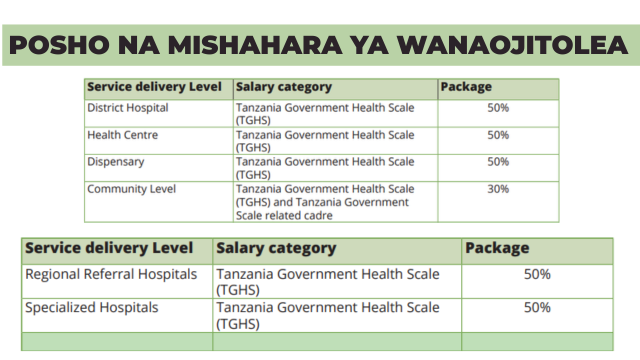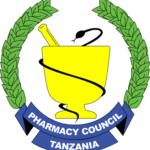Volunteering in Tanzania’s public institutions is more than an act of service — it’s a strategic move toward long-term career growth.
In 2025, the government has formalized two key volunteer programs: Health Volunteers and Teacher Volunteers.
These initiatives aim to bridge staffing gaps while offering graduates meaningful experience, basic financial support, and improved prospects for future employment.
This article compares the two programs using official guidelines and highlights remuneration, eligibility, responsibilities, and career benefits.
Why Volunteer in Government Institutions?
Tanzania continues to face workforce shortages in vital sectors such as health and education. To meet demand, the government provides structured volunteer opportunities to qualified citizens. Volunteering offers several benefits:
- Hands-on professional experience
- Modest monthly allowances to cover basic needs
- Priority consideration during public sector recruitment
- Opportunities to build networks and gain references
1. Remuneration (Mishahara) Comparison
Although these positions are volunteer-based, participants receive allowances tied to service levels. Here’s how the payment structure compares:
| Volunteer Type | Service Level | Allowance | Payment Basis |
|---|---|---|---|
| Health Volunteers | National / Zonal Hospitals | 50% of TGHS salary scale | Based on cadre and facility |
| Regional Hospitals | 50% of TGHS | TGHS | |
| District Hospitals | 50% of TGHS | TGHS | |
| Health Centres / Dispensaries | 50% of TGHS | TGHS | |
| Community Health Workers (CHWs) | 30% of TGHS or equivalent | TGHS or partner-funded | |
| Teacher Volunteers | Primary Schools | Up to TSh 250,000/month | Based on LGA budget |
| Secondary Schools | Up to TSh 300,000/month | Determined by district councils |
TGHS: Tanzania Government Health Scale
2. Eligibility Requirements
Applicants must meet the following criteria to qualify for either program:
| Criteria | Health Volunteers | Teacher Volunteers |
|---|---|---|
| Citizenship | Tanzanian with NIDA ID | Tanzanian with NIDA ID |
| Education | Diploma or degree in a recognized health field | Diploma or degree in Education |
| Professional License | Valid license from health council (e.g., MCT) | Registered with TSC or relevant authority |
| Age Range | 18 – 60 years | 18 – 60 years |
| Background Check | No criminal record | No criminal record |
| Placement Agreement | Must accept rural or underserved areas | Must accept rural school postings |
3. Contract Terms and Service Duration
Volunteer agreements are formalized through contracts lasting 12 to 36 months, depending on need and sector.
Health Sector Volunteers:
- Must undergo orientation and medical screening
- Receive ongoing mentorship and quarterly evaluations
- Work under direct supervision of health professionals
Teacher Volunteers:
- Sign contracts through respective LGAs
- Are supervised by head teachers and ward education officers
- Receive performance reviews periodically
Note: Volunteering does not guarantee employment, but is recognized as a strong factor in recruitment selection.
4. Funding Sources
Allowances are drawn from various national and partner funding sources:
| Sector | Primary Funding Sources |
|---|---|
| Health | NHIF, CHF, government budget allocations, donor partners, and NGOs |
| Education | Local Government Authority (LGA) budgets, community contributions, and NGOs |
5. Roles and Responsibilities
| Aspect | Health Volunteers | Teacher Volunteers |
|---|---|---|
| Daily Duties | Patient care, health education, lab work, support | Lesson planning, teaching, assessments |
| Ethics | Must follow clinical codes of conduct and protocols | Must comply with school rules and teacher conduct |
| Supervision | Technical supervisors at the facility | Head teacher, Ward Education Officer |
| Workload | Based on department/unit staffing needs | Based on allocated teaching timetable |
| Professional Growth | Clinical exposure, mentorship, references | Teaching experience, career exposure, letters of support |
6. Summary of Key Differences
| Feature | Health Volunteers | Teacher Volunteers |
|---|---|---|
| Allowance Model | Percentage of salary scale (TGHS) | Flat-rate amount (TSh 250,000–300,000) |
| Recruitment Body | Ministry of Health, PO-RALG | PO-RALG, District Education Offices |
| Recruitment Portal | MoH & PO-RALG Portals, Training Colleges | District offices via DEO or REO |
| Supervision | Facility HR and medical supervisors | Head teacher, Ward Education Officer |
Conclusion: Which Program is Right for You?
Both volunteer tracks offer vital on-the-job experience and help fill critical staffing gaps in Tanzania’s public sector.
- If you are a health graduate, volunteering will place you in real clinical settings, building hands-on experience and improving your career visibility.
- If you are an education graduate, classroom volunteering sharpens your teaching skills and helps build a professional portfolio.
Mishahara ya Walimu wanaojitolea serikalini 2025 and health volunteer stipends are not salaries — but they provide foundational support while you grow your career.
Tips for Volunteers
- Maintain detailed records of your activities (e.g., logbooks, timesheets)
- Stay proactive during evaluations and supervision visits
- Be flexible and ready to serve in rural or hard-to-reach areas
- Monitor official job updates via www.jerasp.org
References






4 Comments
im a pharmacist in need of volunteering
im a pharmacist in need of volunteering, i got my degree in a reputable health field
do you have a license from phaceutical council
Thank you, But where can I apply for volunteering as a registered nurse?
Is there any link to apply for?